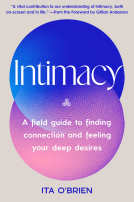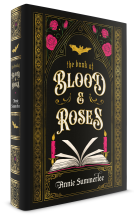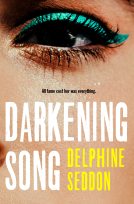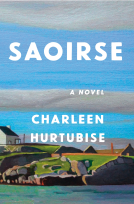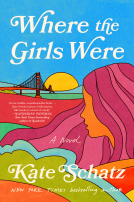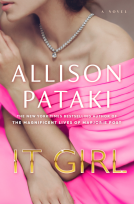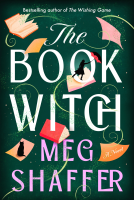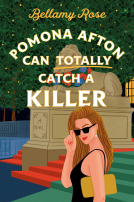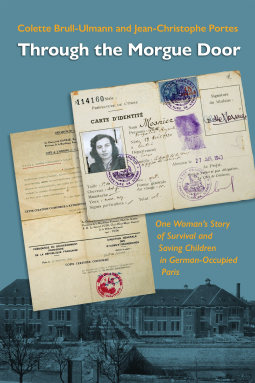
Through the Morgue Door
One Woman’s Story of Survival and Saving Children in German-Occupied Paris
by Colette Brull-Ulmann; Jean-Christophe Portes
This title was previously available on NetGalley and is now archived.
Send NetGalley books directly to your Kindle or Kindle app
1
To read on a Kindle or Kindle app, please add kindle@netgalley.com as an approved email address to receive files in your Amazon account. Click here for step-by-step instructions.
2
Also find your Kindle email address within your Amazon account, and enter it here.
Pub Date Feb 13 2024 | Archive Date Dec 11 2023
Talking about this book? Use #ThroughtheMorgueDoor #NetGalley. More hashtag tips!
Description
In 1934, at the age of fourteen, Colette Brull-Ulmann knew that she wanted to become a pediatrician. By the age of twenty-one, she was in her second year of studying medicine. By 1942, Brull-Ulman and her family had become registered Jews under the ever-increasing statutes against them enacted by Petain’s government. Her father had been arrested and interned at the Drancy detention camp and Brull-Ulman had become an intern at the Rothschild Hospital, the only hospital in Paris where Jewish physicians were allowed to practice and Jewish patients could go for treatment.
Under Claire Heyman, a charismatic social worker who was a leader of the hospital’s secret escape network, Brull-Ulmann began working tirelessly to rescue Jewish children treated at the Rothschild. Her devotion to the protection of children, her bravery, and her imperviousness in the face of the deadly injustices of the Holocaust were always evident—whether smuggling children to safety through the Paris streets in the dead of night or defying officers and doctors who frighteningly held her fate in their hands. Ultimately, Brull-Ulmann was forced to flee the Rothschild in 1943, when she joined her father’s resistance network, gathering and delivering information for De Gaulle’s secret intelligence agency until the Liberation in 1945.
In 1970, Brull-Ulmann finally became a licensed pediatrician. But after the war, like so many others, she sought to bury her memories. It wasn’t until decades later when she finally started to speak publicly—not only about her own work and survival, but about the one child who affected her most deeply. Originally published in French in 2017, Brull-Ulmann’s memoir fearlessly illustrates the horrors of Jewish life under the German Occupation and casts light on the heretofore unknown story of the Rothschild Hospital during this period. But most of all, it chronicles the life of a truly exceptional and courageous woman for whom not acting was never an option.
Available Editions
| EDITION | Other Format |
| ISBN | 9781512825589 |
| PRICE | $34.95 (USD) |
| PAGES | 256 |
Available on NetGalley
Average rating from 43 members
Featured Reviews
 Kristy S, Media/Journalist
Kristy S, Media/Journalist
Captivating from the very first page.
Colette’s life story hooked me in from the very beginning and I read the book in a single sitting, unable to put it down. Heartbreak, heartache, disgust, pride, anger, awe - so many emotions wrapped up within an incredible story.
Whilst Colette’s memories were long locked up, her retelling is rich and vibrant and I imagined myself in her shoes, in awe of the strength and resilience of the human spirit in such trying times.
A powerful story that needs to be shared about a time we all hope we never share again.
Thank you to NetGalley and the publisher for providing this book in exchange for an honest review.
I highly recommend this book. It's not like other WWII books I've read recently. This was different because it's from the perspective of a French Jew who was not even a practicing Jew. She is an amazing woman who strived to break barriers to become a doctor. And the heroic acts she was involved in were amazing.
This was a fantastic memoir, and well-translated from the original French. The translator made a note of how unique the author's French was an how she tried to retain that feeling, and I think she was very successful with that, this book showcase's Colette's wit and intelligence, while being completely engaging to read. Colette's story of WWII is a harrowing one, the number of near misses and risks she took were astounding to read about. Her dedication to medicine and the patients at her hospital were at the forefront of her war efforts, as she joined the underground network based in the hospital to help save children destined for deportation. Colette's insight to how she felt during the war and how those around her reacted was interesting, very few WWII books i've read focus on France, so this was all new for me. There were many moments that stood out, but the story of Danielle and her sister is one that will stay with me.
 Reviewer 1155610
Reviewer 1155610
This was a very well written story about a part of WW2 history we don't hear about very much. I had heard about much of the basics of the book, the takeover of France by the Germans, the provisional French government working with the Germans, and about Drancy, but the aspect of the rescue of Jewish children from a hospital was new. I am so glad that the author chose to finally tell her story. There is so much in it that the world should not forget. The main characters are compelling, and the side characters are all well enough developed that you get invested in their lives and stories so that hearing about their eventual fates creates a emotive experience. The translation from French was well done, and the reading experience is preserved which does not always happen with a translation. I enjoyed reading about these events and learning more about aspects of the resistance that I had not heard about before.
Thank you to Netgalley and the publisher for this advanced copy of this book. All opinions are my own.
Through the Morgue Door
Written By Colette Brull-Ulmann & Jean- Christopher Porters
Published By University of Pennsylvania Press
Release Date February 13, 2023
I feel honored that I was given a copy of this book to read but it is truly a hard book to digest. Colette Brull-Ullman wanted to be a pediatrician and there were so many ways that she went above and beyond to help the children who so desperately needed her help. At the time of the holocaust when Jews were not allowed to do much but live in camps or prisons, like her father, Ullman put herself through school and worked at a hospital in Paris where Jews were not only allowed to work but be seen as patients. Ullman worked closely with a social worker named Claire Heyman who was the leader of the hospitals secret escape network. Together they helped rescue and treat many Jewish children. Many times faced with death herself or mistreatment by officers and other doctors. She fought fearlessly to protect thousands of children whose lives would have ended had it not been for her.
Colette’s memory of her story is vivid and bright. Although most likely locked away due to the harsh memories, it seems as though it helped her as well to remember. At a time during ww2 when the Natzi regime was powerful and cruel, it is refreshing to know that a woman stood up against them and helped those who needed it most. Those who without her help would not have survived.
As a doctor myself I am humbled by what I do but to read this book learning about one woman, one brave woman who was fierce in her endeavors fighting daily and then to become a pediatrician in 1970.and tell her story one more time….for us.
5 stars
Thank you to NetGalley as well as the author and publisher for giving me the opportunity to read this book in exchange for my unbiased and honest review.
 Reviewer 1254522
Reviewer 1254522
A great insight into an unfamiliar resistance born in the heart of a French Hospital. Little is known about the courage and bravery forged in Rothschild hospital, as many did not take credit for the work they did, however, one member with a minor role Dr. Colette Brull-Ulmann recounts her life and the resistance work that took place.
In this book Through the Morgue doors, recounts an intimate story about Dr Colette Brull-Ulmann, as told by herself. Collette takes us through her life, her trials and sorrows, while the book itself is slow, it is nonetheless a must read. Collette brings to life the people, and what day to day life was like, so vividly you can almost stand along side her, as you read her words.
Collette first starts by gives us a little background into her childhood. She grew up in a very well to do family. She grew up with very loving parents, although the book doesn’t give much insight to her mother, or siblings, she does give some brief insight for her father. Her father was a kind, loving man, and appears to have given Collette her very determined and fighting personality. By age 14, she made the decision to become a pediatrician. Never formally attending school, she was determined nonetheless to fulfill her dream, and after 4 years of hard work she received her bac. By age 18 she was finally enrolled into her first year of med school. With increasing Anti-Semitic laws, caused many setbacks for her career, by her second year there was only on hospital allowing Jewish interns, it was at this very hospital Collette would go on to save lives and get an introduction into resistance.
She has a very big and loving heart towards humanity, especially children. Collette may have not played a major role in the Rothschild rescue network for the children, she did make several trips to bring children to safety. Her
determination to stand up for injustice made a difference in many lives, after being forced to leave Rothschild due to an unfortunate encounter, she continued her residence work with her father.
20 years later, Collette would finally be able to become the pediatrician she dreamed of as a little girl. Collette and many others made a big difference, even if not very well known. A plaque outside Rothschild hospital in Paris, commemorates the brave men and women, who refused to stand by and allow the injustice. This is a must read book.
Thank you NetGalley and University of Pennsylvania Press!
Bravery is not just facing something you fear. Bravery is standing up for what you believe in despite it being against the societal norm and or expectation.
Hitler and his maniacal need to "purify" the world would snuff out the light of so many innocent lives, many of whom were just children. Collete Brull-Ulmann had a decision to make... turn a blind eye or risk her life for nothing more than a slight chance of saving a child or a few children's lives. She jeopardized her life not once but multiple times in order for innocent children to stand a chance in life.
Collete along with many other doctors, nurses, social workers and even officers from the Rothschild Hospital came together and devised an escape plan to smuggle children and some adults into safety.
Through the Morgue Door is a story of Collete's bravery. The bravery she needed when she rescued children, the bravery she needed to stand by her family during her own persecution and suffering. It is a story of her bravery and determination to survive in a world that told her she had no place in it.
 Greggary L, Reviewer
Greggary L, Reviewer
Thank you NetGalley and University of Pennsylvania Press for making this book available for review.
This year my reading list has focused on the Second World War. While there are many histories, biographies, and memoirs out there, I found that this memoir by Collette Brull-Ulmann not only ties together many themes that one can find in WWII pieces, but also provides a unique window into life during the German occupation of France. It is certainly worth a read for anyone interested in WWII and specifically the French Resistance and Holocaust.
THINGS I ENJOYED
1. Genuine Narration. One thing I found very profound is the frankness of the author's voice throughout this book. Her memoir does not get overly editorialized or packaged up into witty and profound prose. Her story is not as eloquent as perhaps that of Eli Wiesel in Night, but what I appreciated about it was how genuine it all felt. She explicitly recognizes her memory limitations and doesn’t embellish. Additionally, and perhaps more a sign of her humility like many of the helpers of WWII, she doesn’t boast of her role in the Rothschild network as being some grand heroic endeavor; it was simply the right thing to do. Throughout her memoir we see her growth from her childhood naiveté while living in Tunisia, to her somber dedication to stay the course during the course of the occupation. She is frank about what things ended happily, and the many more things that did not.
2. A Window into Life In Occupied Paris. Much in the same way that Anne Frank’s diary is so valuable, this memoir provides great detail into what life was like in occupied Paris. She recounts the transition of the French government from positions of treating Jews as Frenchmen first to ultimately collaborating with the Nazis for the exportation of Jews to the East. We also see the hardships faced in the forms of transportation limits, food rations, employment segregation, etc. Like Frank, Brull-Ulmann also has a story of hiding. Like Frank’s family, she and her siblings in particular had to “[build] for themselves a world of dreams, of boredom, and fear.” However, quite different from the Franks, Brull-Ulmann, was often hiding in plain sight traversing the city via metro and working at the hospital. I think her work is important because it helps readers better understand the fear and anxieties that people were living with, even if they weren’t yet caught and sent to concentration camps.
3. Symbolism of the Hospital. Perhaps one of the more literary aspects of the work is the physical transformation of the hospital, which “outwardly, nothing had changed […] except for the bared wire […] but it had been transformed into something hideous, as if the horror that had begun in Poland […] had reached here and was seeping into our buildings, into our souls.”
4. An Insider View of Lesser Known Resistance Activities. Before reading this memoir I was not familiar with more than maybe 2 other concerted efforts to save children from deportation to concentration camps. Brull-Ulman’s memoir is fascinating and provides an insider perspective into how ordinary people did what they could to make a difference. The members of the hospital staff would “[invent] new ways to lie to [the Germans], to rob them of the men and women they wanted to deport, to devour.” They “altered diagnoses, found complications where there were none, detected tuberculosis… [and even had] an abnormally high number of stillborns [reported]” to help keep children off of the trains bound for the East. Interestingly as she points out, as the hospital becomes more confined, it also inadvertently kept a lot of their activities from prying eyes. The author also recognizes that many of the guards were likely complicit because had they had an ounce of curiosity, they would have noticed that somethings were not adding up. In this way, we can see that the lines between “good” and “bad” get blurred. Throughout she also points out the numerous reasons people acted or did not act in various circumstances. It definitely helps give depth and nuance to our understanding of the Holocaust.
5. First Hand Account of Rescue Missions. This portion of the memoir is actually much shorter than I expected. However, the account is riveting and profound. The author recounts her work escorting children out of the hospital and into safe houses to help get them to safety. We get to see her bravery, and its interesting to note what of that experience still impresses on her mind many years later.
6. The Burden of Memory. Another thing I really enjoyed was reading how the author dealt with the memory of these events. For years she, like many other helpers, would not speak about her work to aid those in need. More than just modesty though, we see that a lot of her silence is tied to wanting to avoid the pain of recollection; the sorrow of seeing the faces of those who they were not successful in saving from deportation and death.
CRITICISMS
Readers looking for something more like a spy thriller like A Woman of No Importance or Madame Fourcade’s Secret War may not find the same kind of experience here. The author’s activity with the resistance and her personal involvement on missions to accompany children to safety are a relatively shorter segment of the memoir.
One thing that I found myself thinking while reading was that the author spent a lot of time on her childhood and the years proceeding WWII. However, in the end, I think this was ultimately a good decision. It helps us as readers see her character arc so to say and her growth from an innocent child to a war time doctor and spy.
OVERALL
Overall, this memoir is a great read. It is an important contribution to the works on WWII in France, life under the Petin/Vichy France, the Occupation of Paris, and the Holocaust. The author's genuine voice, harrowing account, and personal reflection offer readers an incredible journey into history, memory, and loss.
 Jennifer D, Reviewer
Jennifer D, Reviewer
Such bravery throughout this book! A look inside occupied France during the Second World War. What doctors, nurses, and other brave souls tried to do to save who they could. All while going through their own personal hell.
I was very happy to have read this book and the experience of Collette.
I voluntarily reviewed a copy of this book provided by NetGalley.
Hitler’s army occupied France like an overturned bottle of ink spilled on a map. Colette Brull-Ulmann was a Jewish medical student working as an intern at the Rothschild Hospital. The Germans brought Jews from the Drancy internment camp to the Rothschild Hospital for treatment of illness and after severe beatings.
The Germans detained Brull-Ulmann’s father for a while in this same camp, and her younger brother and sister left Paris to live in less danger.
Brull-Ulmann became emotionally attached to Danielle, a young girl at the hospital. This was an endearing child, loved by everyone, even the German guards. When the girl recovered, the doctors and nurses found additional reasons the child was “too ill” to return to the camp.
It seemed Jewish women who gave birth at the hospital had a higher than usual number of stillborn babies. In fact, the women gave up their babies at birth to be smuggled to safety. Brull-Ulmann heard it rumored some patients, especially children, were smuggled out of the hospital through the morgue door, the only door left unlocked and unguarded.
Brull-Ulmann was herself called upon to smuggle two children through the morgue door and the dark streets of the Paris night to safety. She details this one mission, although she said she participated in perhaps two others.
A ruthless doctor from the infirmary at Drancy ordered Danielle and several other Rothschild patients to go back to the camp. That was the last Brull-Ulmann saw of the sweet girl. The intern was sure the Germans killed Danielle and the rest of her family in an extermination camp. Brull-Ulmann grieved because she was not able to save Danielle.
Brull-Ulmann went on to secretly treat wounded allies in hiding, and to work for the French Resistance. Although the title, Through the Morgue Door, is intriguing, it reflects only a small part of the book. Brull-Ulmann obsesses over the loss of Danielle, and she devotes much of the book to her grief concerning the girl.
Thank you to the author and Netgalley for the opportunity to read this book. I am Jewish. I have read some books on the holocaust. This is the first book that I have read on what happened in Paris to the Jews.
The book was written exceptionally well. I was interested in all the characters. I was interested in the history at the time. I had empathy for the characters. I couldn't imagine what it was like to live then.
Thank you for writing this story. It was easy to read. Some books on the Holocaust are so gruesome or just so many facts. This book was written with compassion but didn't leave me feeling overwhelmed with facts or details of horror.
I highly encourage others to read this interesting story. This book, like any truly good book, changed me.
 Reviewer 1123832
Reviewer 1123832
"Through the Morgue Door" explores the Holocaust and survivor stories, a topic I usually like to read. Unfortunately, I couldn't connect with this book. I really wanted to like it, but the writing style didn't click with me.
Despite the book addressing a heavy and emotional subject, the way it tells the story felt hard to get into. The writing lacked the emotional connection I look for in such narratives, making it difficult for me to engage with the characters and the events.
Through the Morgue Door
Colette Brull-Ulmann and Jean-Christophe Portes
One Woman’s Story of Survival and Saving Children in German-Occupied Paris
What made this narrative bearable to read was Brull-Ulmann’s decision to tell this story through the eyes of a physician. She seemed more intent on describing the unfairness of the persecution of the Jews than to describe the horrors of the concentration camps and those people inside them held as prisoners who had to endure them until they didn’t.
In that way, she differed from Elie Wiesel and the fiction of Leon Uris. She differed from Irena Sendler, “the female Schindler,” in that, not only did she (Irena) save the lives of thousands of Jewish children, but she devised a filing system that enabled surviving members of their families of to find them. Her story is told by Tilar J. Mazzeo..
Brill-Ullman provides a first-person account of being a Jewish physician during World War II in Paris and the helplessness she felt in saving the lives of Jews only to see them transported back to Drancy Prison to either die, be tortured or sent to concentration camps. This book is a jewel in that she lived through the German Occupation and then wrote about it. She died in 2021 at the age of 101.
It was a privilege to read this book. But I am a lover of fiction, specifically creative non-fiction which Elie Wiesel wrote, and Leon Uris enhanced in his fiction.
Brull-Ullman describes a Jewish woman who had a nervous breakdown after seeing her husband’s head crushed in an elevator shaft while he was checking for Nazis. She dressed in her finest clothes for the doctor who wished to take her to Drancy. Leon Uris wrote about people whose minds broke in the book “Exodus.” The character Karen goes to see her father in a nursing home after his release from a concentration camp and he is catatonic, unable to recognize her.
Few writers of the second and third generation after World War II have captured the poignancy of the Jewish plight during the war. Rivka Galchen, an admitted fan of Leon Uris’s fiction, matches the poignancy of his writing in her book, “Everyone Knows Your Mother is a Witch.” When Katherina Kepler, mother of Johannes Kepler, is released from prison, her old friend, fictional Simon, comes to visit her at her daughter’s house where she is living. He struggles to entertain her, play a game with her, anything. Unlike Karen’s father in “Exodus,” she can talk but shows complete disinterest and he quietly walks home.
Although Brull-Ullman describes her helplessness at being unable to provide her patients with an escape method, she fails to describe the impact that torture during imprisonment has on the souls of the people that endure it. And in that way, her non-fiction account of observation fails to capture the ultimate destruction of the minds and souls of so many Holocaust survivors.
Many thanks to NetGalley and Penn for providing me with this ARC.
 Andrea R, Reviewer
Andrea R, Reviewer
Through the Morgue Door, though a,memoir, to me, read similar to a,novel. It did not read similar to a novel because I did not believe what I was reading, but how Brull-Ulmann wrote her story made reality readable.
With her story itself, Brull-Ulmann brought both reality and humanity to a time, place and situation that many people would prefer to forget - as she tried to do. To hear the struggles of real people during the Holocaust, and in this specific memoir, about a Jew who struggled and suffered without spending any time in an actual Concentration Camp.
How Brull-Ulmann ended her memoir is really the ultimate gift in multiple ways.
 Mariya B, Reviewer
Mariya B, Reviewer
A very interesting read- during WW2 in Nazi occupied France (Paris) Colette (author of the book) was working as
medical intern in Rothschild Hospital..
She was responsible to take care of displaced Jews,abounded Jews kids…e.t.c..
Colette was only 16 years,but took these responsibilities deep in her heart-she met in hospital young Jewish
girl name Danielle,who was 3 years old…and who was sent later to Drancy concentration camp,where Danielle vanished as many others Jewish people…
What is amazed me most ,that Colette never overcame that guilt of lost that girl even she couldn’t do anything to save her..
During whole life she kept the image of the young girl …Colette became very professional medical pediatrician ..
It’s very fascinated story about Parisian resistance during war time…,it’s touched my heart also….
Thanks NetGalley for sharing this story with me….
Dr Colette Brull-Ulmann tells the story of her life and determination to become a doctor. She made that decision to become a pediatrician at the young age of 14. However, it took her 20 years.
We get a first look at her upbringing. Her rescue work for children. At the time there was Anti-Semitic laws. She did find a hospital that allowed Jewish interns, Rothschild hospital.
A brave story of determination. This was a great story. I highly enjoyed it.
4 ⭐️⭐️⭐️⭐️
 Terri W, Reviewer
Terri W, Reviewer
Fascinating and heartbreaking record of what Jewish people went through in WWII Europe. I still find this treatment of ordinary citizens to be unconscionable and criminal, and wonder how many people whom I've actually met still hold views like this.
 Kevin H, Reviewer
Kevin H, Reviewer
The heartfelt story of Colette Brull-Ullman, a brave woman who overcame odds and fear through the dark times of German occupation of France during World War II, working in underground resistance networks amidst the horrors she details and the degradations of the Jewish people. Her book reads like a fireside storytelling, with basic narrative and sentence structure. This leaves some parts of her story not fully fleshed out, but does not detract from the immersion of what she experienced.
 Reviewer 1102597
Reviewer 1102597
As a storyteller, I weave tales of heroism and courage. But sometimes, a true story comes along that leaves me in awe. Collete Brull-Ulmann's tale is just that. In a world where fear and hatred ruled, she was a ray of light, illuminating the darkness. She didn't just hide from the shadows, she confronted them head-on, risking everything to save the lives of innocent children. Her bravery wasn't just about facing danger, but about standing up for what was right, even when it seemed the world was against her. Collete's story is a reminder that heroes don't wear capes or have superpowers, they are ordinary people who do extraordinary things. And it's our job to keep their stories alive, so that their courage inspires us for generations to come.
In a world where darkness reigned, a ray of light burst forth from an unexpected place - the morgue. Collete, a rebellious spirit, defied the shackles of oppression and orchestrated a daring escape, turning a door of death into a portal of liberation. Like a conductor leading a symphony of hope, she marshaled a diverse ensemble of medical professionals, social workers, and even law enforcement to join her in a clandestine opera of rescue and resilience. Through the Morgue Door, a tale of courage and creative resistance unfolds, challenging us to reimagine the boundaries of human possibility and the power of collective bravery in the face of overwhelming adversity.
Thank you Netgalley and Publisher for providing me with an advance copy ♥️
 Monica C, Reviewer
Monica C, Reviewer
A totally different look at WWII and the Jews. Colette Brull-Ulmann was a French Jew and this is her story of working in the Rothschild Hospital. She grew up wanting to care for children. At the start of the Nazi terror, she had started school to become a doctor. Soon, because she was a Jew, she was not allowed to go to school with the rest of the people. Thus, she ended up at Rothschild Hospital. Here she would do amazing things to save children, but also lost some. From Rothschild she would go on to join the Resistance. Finally, years later she would reach her dream of being a Pediatrician.
As I watch the news and Israel is at war, just because of them being Jews, I wonder if we will ever learn how to get along with other people. We are all the same as children of God, yet we can't seem to get along with each other. Books like these are important where maybe what happened during WWII won't happen, again. It's a story only being now told as Brull-Ulmann was the last survivor and she finally decided to tell what happened at the hospital. I feel that we need to read about history to learn from it, where hopefully the same mistakes won't happen again.
Tentative Publication Date: February 13, 2024
Thank you to Netgalley and the University of Pennsylvania Press for the E-ARC. All thoughts and opinions are my own.
🙂 Happy Reading 🙂
#netgalley
#universityofpennsylvaniapress
#throughthemorguedoor
#nonfiction
This book tells the story of Colette Brull-Ulmann, who worked as a (Jewish) intern at a hospital in Paris that treated Jewish prisoners. It was fascinating from start to finish. The author discusses how the occupation by the Germans gradually progressed, and how families coped. It was sobering to see how quickly things could go wrong, and how much tragedy happened to so many. I'm very glad I got to read this book - I think I read it all in one sitting.
 Carissa M, Reviewer
Carissa M, Reviewer
I enjoyed learning about this lesser known piece of history that I didn’t learn about in the history books.
 Jan T, Reviewer
Jan T, Reviewer
France, feminist, WW2, Jews, bravery, rescued-children, rescue, medical-doctor, memoir, human-rights, humanity, French-underground, German-occupation, nonfiction, holocaust, injustice, grief, grieving, historical-figures, historical-places-events, historical-setting, history-and-culture*****
Faithfully translated by Anne Landau and Margaret Sinclair from the original French written by Colette Brull-Ulmann (1920-2021) in 2017 with Jean-Christophe Portes the French journalist/writer. At that time and place those targeted for slaughter and worse were mostly Jews and the children were hidden by a non-practicing Jewish woman doctor and the French Underground. This is her story of man's inhumanity to man and those who worked hard with much danger to themselves to change the outcomes as told in her own words.
I requested and received an EARC from University of Pennsylvania Press via NetGalley. Thank you
NEVER FORGET and LEARN FROM THE PAST
My thanks to NetGalley and the publisher of this book, University of Pennsylvania Press, for the opportunity to read an advance copy of the book, Through the Morgue Door, by Colette Brull-Ulmann. I loved this book in the sense that I treasure hearing the stories of people's experiences, their survival, their hopes, their struggles. We need to preserve these voices and raise awareness about the realities of life, war, loss, and antisemitism. I want to thank Colette (posthumously) for her service and dedication. She was brave, compassionate, and an amazing human being who saved lives. The book itself, either because of the translation or due to the nature of how it was written, that is, as a memoir, is not a literary feat, but it was engaging and compelling. At times, the story is a bit disjointed and the language overused. It is important to keep in mind that this sort of storytelling is not crafted necessarily to have in-depth character development or complex story arcs. It is an almost raw re-telling of a series of events and life as it is remembered. For this I am truly thankful to the author. I felt like I was sitting with this survivor and listening to her recount her experiences and talk about the realities of her life. Colette and some of her colleagues played critical yet unsung roles during the war and occupation in France, and I'm so glad their stories are being told. #ThroughtheMorgueDoor #NetGalley
 Susan M, Reviewer
Susan M, Reviewer
At 14 years old, Colette Brull knew she wanted to be a pediatrician. Her parents were surprise that she wanted to do that. At the age of 21 years old, she was in her second year of medical school. Then in 1942, she and her family became registered Jews. As time passed her father was arrested and taken to the Drancy detention camp. Colette was interning at the Rothschild Hospital. It was the only hospital that Jewish physicians could work at and Jewish people could receive treatment. Claire was a social worker and the leader of the hospital’s secret escape network. The danger of the Holocaust had become apparent and Colette worked with Claire to save as many children that she could. She ended up fleeing the hospital. Why? Eventually she works in her father’s resistance network for De Gaulle’s secret intelligence agency until the Liberation in 1945. She marries and becomes Colette Brull-Ulmann in 1948. In 1970, Colette has become a liscensed pediatrician. Colette didn’t want to remember the war and her memories of it. Finally Colette tells of her life and experiences under the German occupation. It was published in French in 2017. It is now translated. This story of her life under the German occupation in France shows a woman who never gave up and did much to help others. It is a biography not to forget but to remember.
Through the Morgue Door is the story of Colette Brull-Ulmann, a brave Jewish woman who not only survived the Holocaust, but used her position at the Rothschild Hospital to rescue Jewish children in Paris. Colette, details not only her daring escapades smuggling children out of Paris, but also the bigger story of the underground resistance to the Nazi regime. Told in a unique narrative style, Colette tells us her own story, in her own words. A tale of resourcefulness, bravery, and love, this is one that will sit with you long after you have turned the final page. History like this deserves to be read, because without knowledge of past atrocities, we are doomed to repeat them.
Thank you to NetGalley and University of Pennsylvania Press for this ARC. I am leaving this review voluntarily and all views expressed are my own.
 Ingerid T, Reviewer
Ingerid T, Reviewer
Ww2 is one of my big interests so when I saw this I was immediately interested. And reading the index made me want to read it right now. I've read many books about ww2 but never one like this. She is a jew her self (at least on paper) but still helped others escape and saved many lives while putting herself in danger without a second thought.
 Mary Y, Librarian
Mary Y, Librarian
Colette decided at a young age that she wanted to be a pediatrician. Determined, she entered school and excelled. As a Jew in occupied France, her options to study and practice were severely limited. After becoming an intern at the Rothschild Hospital, the hospital became part of the Drancy detention center. Prisoners were sent to the hospital to rest and recover before being shipped to concentration camps. Children were also sent to the hospital, where an underground resistance network would do everything they could to make the children disappear. Colette became part of that important organization.
The book was well written and engaging, and nothing seemed lost in translation. The translator did an amazing job! I knew nothing about the Rothschild Hospital before reading this book, and was amazed at its role during WWII. I thought Colette and her colleagues were heroes and wish more had been written about them. Overall, 5 out of 5 stars.
 Terri L, Media/Journalist
Terri L, Media/Journalist
Despite the title, this is not about stories that happen in the morgue. This is the story of how the morgue is a perfect hiding place for the operation to save children in Occupied France. This is told from one piece of the puzzle in the operation and it is her story, and it's true. If you want a story about how children were saved from someone who helped, then this is the book for you!
 Julie H, Reviewer
Julie H, Reviewer
Summary
This is the memoir of Colette Brull-Ullman who was studying to become a pediatrician when World War 2 broke out and France was invaded. As a Jewish woman, she found her options suddenly limited and accepted a position at the Rothschild Hospital, which was the only hospital in Paris where Jewish doctors could work and the only hospital where Jewish patients could be treated. The Rothschild soon became the prison hospital for Drancy, the Paris detention center where the Jewish population was held before deportation to the concentration camps. Throughout the war, Colette’s fury at the Germans and their collaborators grew, and she took any available opportunity to thwart them. Perhaps her most daring work was helping to smuggle Jewish children to safety at night through the morgue door that was left unguarded.
My Thoughts
First published in French in 2017, when Brull-Ullman was 97 years old, this is a compelling historical memoir.
While it does contain moments of sweetness and beauty, this book is heart-wrenching. Brull-Ullman doesn’t hold back on the details of the horrors that she and the other doctors see. It is evident that the emotional scars of her experiences run deep.
I found Colette to be extremely likable. She was determined as a child and unstoppable as an adult. She presented courage and resistance in the face of evil and hopelessness, and hers is an important story.
I received a free eARC of this book from NetGalley in exchange for an honest review.
 Debra P, Reviewer
Debra P, Reviewer
I was given an advance reading copy (arc) of this book from NetGalley.com in exchange for a fair review. Colette Brull-Ulmann lived through terrible times. As a Jewish woman, she not only survived World War II, but set aside her own safety to ensure others survived as well. Her father was a German soldier during World War I. As a veteran, he thought he and his family were safe from the Nazis, but they were not. They fled and eventually ended up in Paris where Colette found work at the Rothschild Hospital--the only hospital allowed to treat Jewish people. At the hospital, which is still there, workers banned together to smuggle children (including newborns) through the morgue door and out to what they hoped was freedom. It is an amazing story of selflessness and suffering; parts of it are hard to read due to the content. There are no records to document how many children were actually saved, but it was the children who were not saved that seemed to trouble Brull-Ulmann the most. Her dream of becoming a pediatrician was eventually fulfilled, but she never forgot what happened at the Rothschild Hospital. She carried those memories with her for the rest of her long life. The book was originally written in French and then translated for English readers, but it seems something may have been lost in the translation so I gave it four stars instead of five. Other than that, I highly recommend this nonfiction book to anyone interested in World War II or real-life heroes.
 Maria-Anne D, Reviewer
Maria-Anne D, Reviewer
This is the story of a young Jewish woman living and working in occupied Paris. Dreams of becoming a doctor quickly evaporated. Her only possibility was becoming an intern at the Rothschilds’ hospital, the only place in Paris where Jewish doctors could still work. Also, the only place for Jewish patients to get care. Been near the detention camp was mostly the source of their patients. Nursing half dead and severely tortured prisoners back to health, only to see them been taken back to the internment camp had to be devasting to the workers of the hospital. This made it even harder when it involved young children. It is hard not to become attached. Two siblings that they managed to keep longer than usual, noticed by the camp commander, and taken away. The loss of these two children affected Colette the most. It is amazing that Colette, under the supervision of Claire Heyman who was the leader of the secret escape network, managed to accomplish as much as she did. Not only did these women had to be careful of the Germans but also of co-workers that would have turned them in for fear of their own lives and families.
This is not a fiction novel but a memoir that chronicles the life a courageous woman that could not stand by and let it all happen without her becoming involved in trying to help where she could.
Through the Morgue Door by Colette Brull-Ulmann and Jean-Christophe Portes is a biography about survival under desperate conditions in Nazi-occupied France during WWII, especially Paris. But it is also about heroism fraught with incredible risk in the darkest of days.
Vichy set up its own anti-Jew schemes which delighted the Nazis. Occupied France was unique in that it had French Jews and foreign Jews who eventually had no rights to practice medicine and to be seen by doctors. One lone Parisian hospital was the exception. Since the age of 14, Colette knew she wanted to become a pediatrician. As a young woman she started her education but it was halted with the war. As a Jew, her only option was the Rothschild Hospital where she was an intern. Encouraged by Claire Heyman, the hospital social worker and Resistance leader, she joined the risky Resistance which smuggled children out of the hospital morgue. Claire organized death certificates and other documents necessary to pull it off.
Claire and Colette were true heroines. They selflessly saved many lives with great courage. If caught, death was highly likely. Jean-Christophe Portes had the honour of interviewing Colette in the early 2000s. She became a pediatrician in 1970. The matter-of-fact stories about invisible ink, code names and police surveillance at Rothschild are fascinating and sobering. The entire book is.
I am grateful Holocaust survivors and rescuers have told their powerful and important stories. We need to learn as much as we possibly can. Books like this are critical pieces of the WWII puzzle which reveal wonderful kindness, humility, determination and courage in impossible situations.
My sincere thank you University of Pennsylvania Press and NetGalley for providing me with a digital copy of this phenomenal book.
⭐⭐⭐⭐⭐
This is such an impactful story of a brave Jewish survivor, Colette Brull-Ulmann, and all who formed a network at Rothschild Hospital in Paris, France to help children escape during the Holocaust.
Colette fiercely pushed back against evil and acted selflessly to save others despite the danger she faced. I feel truly honored to have read her story, and it's certainly a story that needs to be heard.
May Danielle and her sister Céline always be remembered, and may the rest of us never forget. Dr. Colette Brull-Ulmann, Claire Heyman, Maria Errazuriz, and others who helped, may the memory of each of you be a blessing. As inscribed on a commemorative plaque placed in 2011 at the entrance of the Rothschild Foundation, rue de Picpus, in Paris: "May their courage serve as an example to future generations."
Thank you to Netgalley and University of Pennsylvania Press for allowing me the opportunity to review. All opinions are my own.
 Carrie W, Reviewer
Carrie W, Reviewer
I really really wanted to like this book, but it didn’t pull me in the way I anticipated. It is a good book, I just wasn’t crazy about it.
 Tara A, Book Trade Professional
Tara A, Book Trade Professional
"Through the Morgue Door" is a powerful first-hand account of the horrors of WWII. However, it's told documentary-style rather than as a novelization. As a result, there's a lot more "telling" than "showing" in the writing. That doesn't make it bad, but it does create a completely different feel to the narrative.
And because this is one person's account, there are gaps in the story that the author simply couldn't fill in because she didn't know the answers herself. So, in the end, I was left with a lot of questions and a slightly dissatisfied feeling that there was more to the story than we found out in the end.
But it's certainly a story that's worth telling. There is a saying that goes, "The only thing necessary for the triumph of evil is for good men to do nothing." And Colette's retelling of the earlier events of her life shows just how powerful it can be when good men take a stand and do what they can to right the wrongs taking place around them.
Thank you to Colette Brull-Ulmann, University of Pennsylvania Press, and NetGalley for an advance review copy.
Engaging Yet Slightly Underwhelming Account of Survival in Occupied Paris
THROUGH THE MORGUE DOOR offers a compelling narrative of Colette Brull-Ulmann's remarkable experiences during the German occupation of Paris, particularly her efforts to save children from the Holocaust. The book succeeds in immersing readers in the tense atmosphere of the era, shedding light on the resilience and courage of individuals like Brull-Ulmann.
However, despite its gripping subject matter, the execution falls somewhat short of expectations. While Brull-Ulmann's story is undeniably inspiring, the pacing sometimes feels uneven, with her childhood receiving disproportionate attention while major events are glossed over. This imbalance detracts from the overall coherence of the book and leaves some aspects of Brull-Ulmann's journey feeling under-explored.
The writing style, while serviceable, lacks the lyrical quality that might have elevated the narrative to a more profound level. The prose occasionally feels flat and fails to fully capture the emotional depth of Brull-Ulmann's experiences. As a result, readers may find it difficult to fully connect with the protagonist and empathize with her struggles on a visceral level.
Despite these shortcomings, THROUGH THE MORGUE DOOR remains a worthwhile read for those interested in World War II history, particularly the lesser-known stories of resistance and survival in occupied territories. Brull-Ulmann's bravery and compassion shine through despite the book's flaws, serving as a testament to the resilience of the human spirit in the face of adversity. I'm glad she told her story, and I'm glad I read it.
Thank you #NetGalley and University of Pennsylvania Press for sending this book for review consideration. All opinions are my own. #ThroughTheMorgueDoor #PennPress
I received this book as an ARC via Netgalley in exchange for an honest review. Many thanks to the author, translators and publisher for this opportunity.
This book was originally published in French in 2017. What a privilege to read Collete’s memoir to include Claire’s story and the story of Rothschild Hospital in English.
Readers who liked this book also liked:
We Are Bookish
LGBTQIAP+, Romance, Sci Fi & Fantasy




